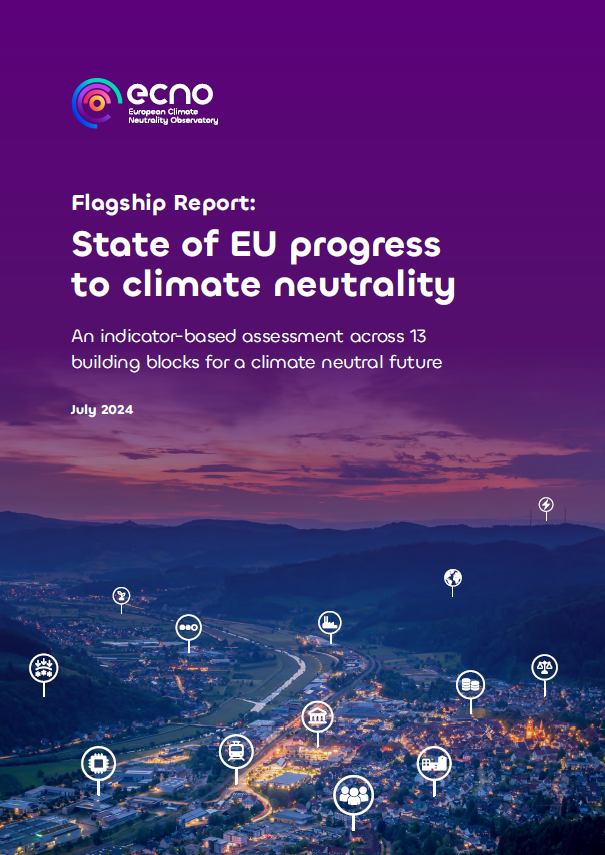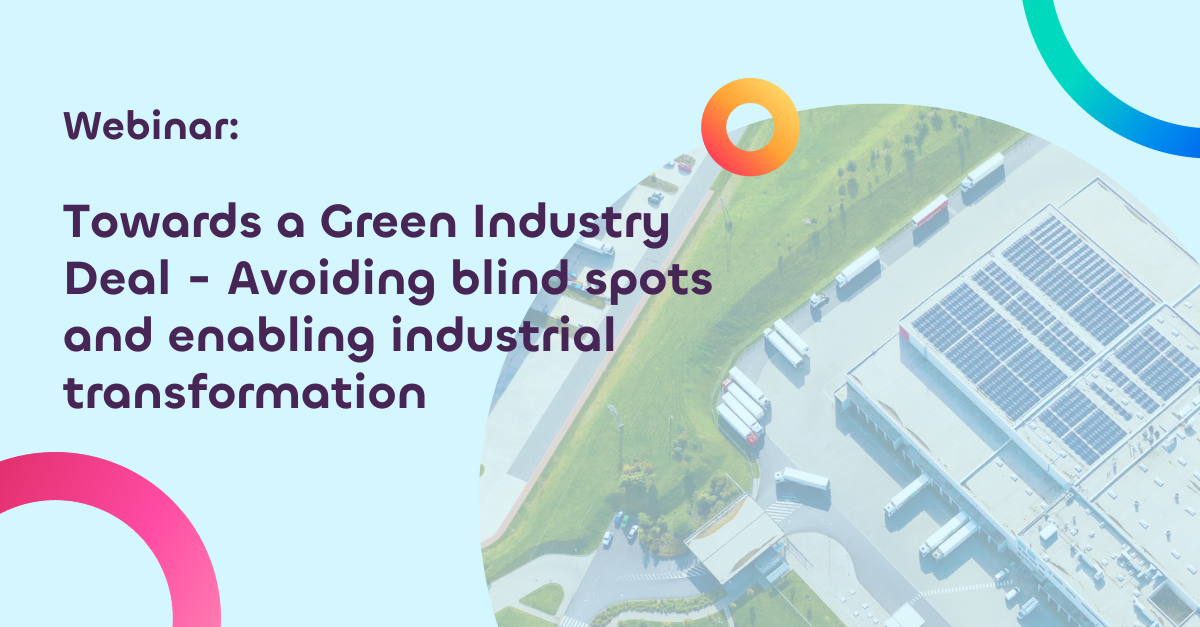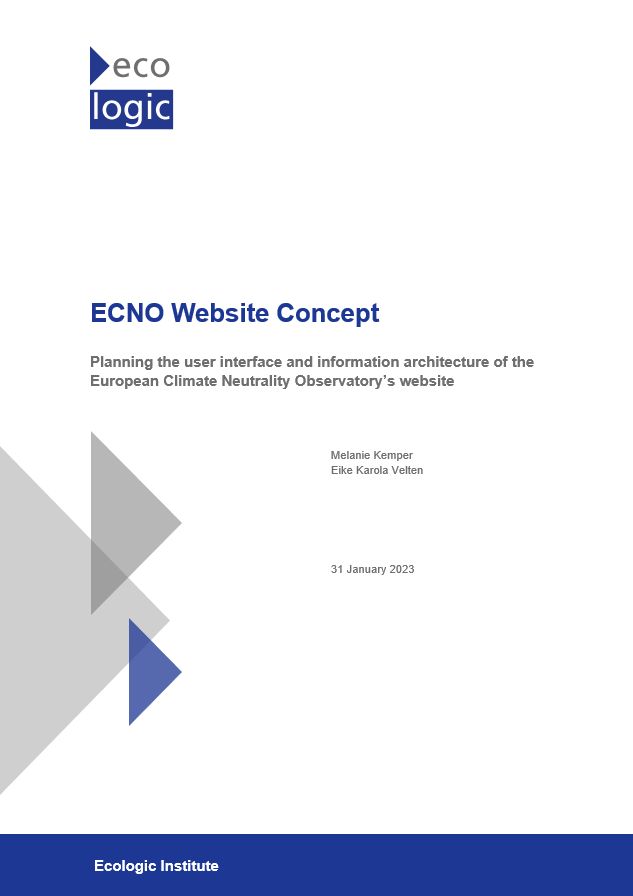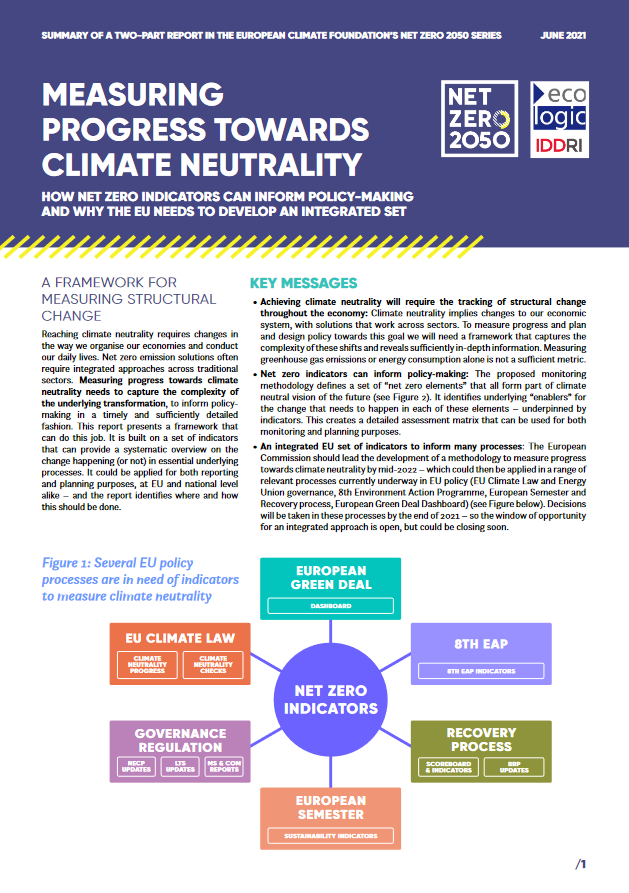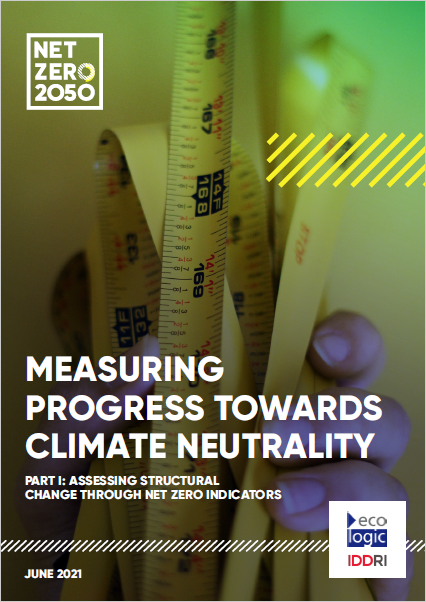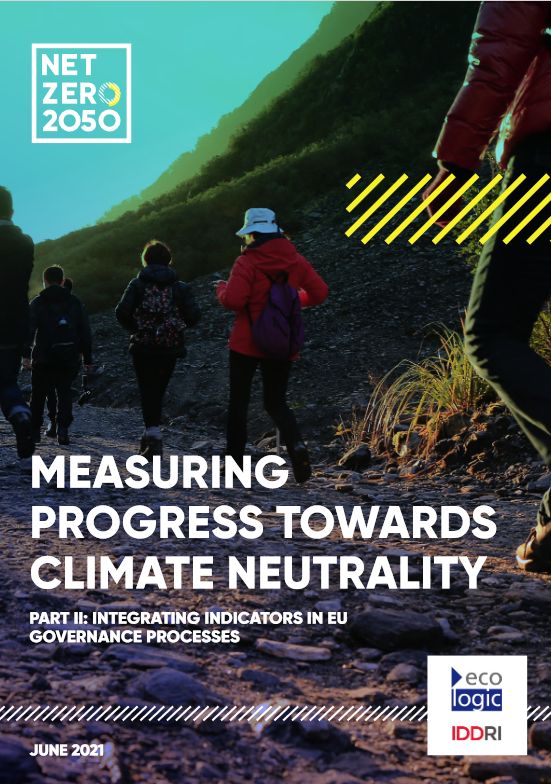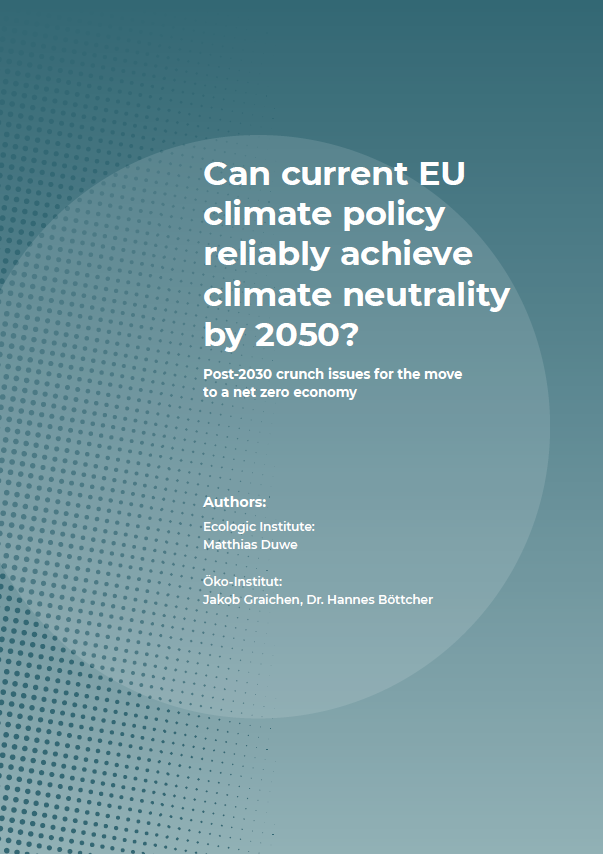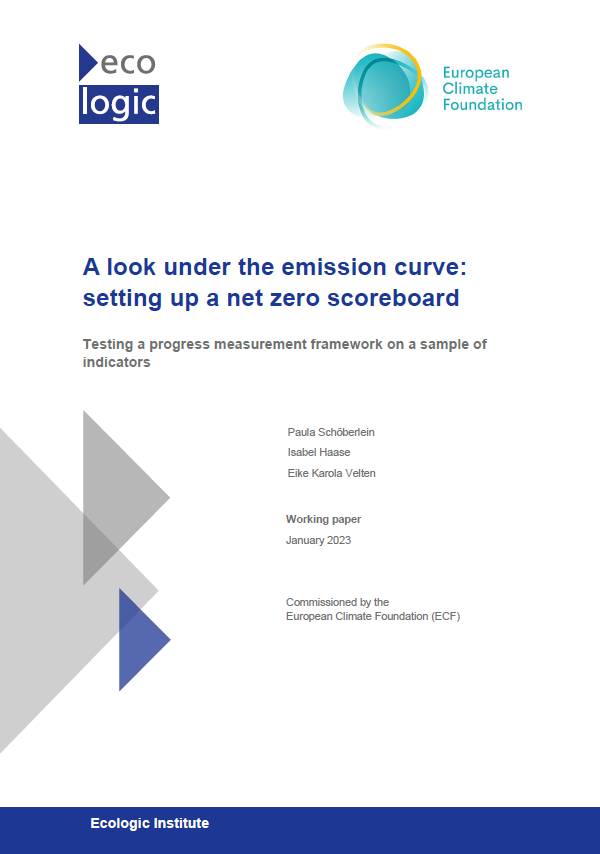State of EU Progress to Climate Neutrality
An indicator-based assessment across 13 building blocks for a climate neutral future
- Publication
- Citation
Velten, Eike Karola et al. 2023: Flagship Report: State of EU progress to climate neutrality. An indicator-based assessment across 13 building blocks for a climate neutral future. European Climate Neutrality Observatory (ECNO).
The EU Climate Law legally binds EU countries as a whole to become climate neutral by 2050. Achieving this goal requires transforming the way we produce, consume, travel, and eat. EU institutions have already put in place many measures to guide and support governments, businesses, and citizens in this transition. To be effective, policy-makers must now understand how – and at what pace – these measures translate into changes in the real world. The European Climate Neutrality Observatory (ECNO) flagship report is the first ever assessment to provide this information at an economy-wide level, and to not only focus on top-line targets but also on enablers of change.
ECNO's assessment looks across thirteen building blocks of a climate neutral future
Within each of these, the assessment identifies two objectives and six enabling conditions for the change needed, resulting in an analysis of a total of 104 indicators. The approach is designed to accompany the implementation of the European Green Deal. Because of the delay in data availability, this first assessment considers mostly data from the 2015–2021 period, at a moment when the European Green Deal was in its infancy. Green Deal policies are factored in where possible, and will shape future developments in each building block.
Key insights of the ECNO flagship report are:
-
The progress assessment shows that the EU has, over the period analysed, moved in the right direction, but needs to significantly pick up the pace of change to be on an effective path towards climate neutrality by 2050. This overall promising orientation was the case for all building blocks except for finance and carbon dioxide removals. A look at the additional policies adopted under the European Green Deal in the past two years indicates that the EU is taking steps to accelerate progress in most areas. This already shows in the governance system for climate policy that is assessed as being 'on track'.
-
The assessment contains detailed results to inform decision-makers about areas in need of closer attention. Further targeted action is most needed where objectives and key underlying enablers have been progressing 'far too slowly', or – as in some instances – have moved in the wrong direction. Enabling conditions are critical areas for investigation as they unlock essential transitions. Inadequate pace on enablers carries significant risk to the EU's ability to meet its target.
-
A specific concern is the state of finance for transition in the EU. Counterproductive economic incentives remain in place, with some of them worsening in 2021 and 2022. Furthermore, the EU economy consistently puts too little public and private capital into climate investments, while still over-investing in fossil fuels. This endangers the transition at large, as today's climate investments enable tomorrow's emissions reduction.
-
Transparency on past progress is a crucial element of climate governance and the efficient allocation of capital by public and private economic actors. This needs adequate, reliable data and official benchmarks. The assessment however reveals that significant gaps in data and ambition setting remain. Without a solid information base and framework for assessment, decisive barriers or lack of progress may go unnoticed.
-
Current EU progress tracking is not designed to reveal detailed real-world developments to inform targeted policy action. Going forward, EU institutions should set up an official, up to date, open-source monitoring system that is sufficiently granular to fulfill this function. The tracking system needs to be updated regularly, based on recent modelling of reliable pathways to 2050, and integrated with existing EU planning and monitoring systems. For full effect, EU decision makers should consider integrating into the EU Climate Law a dedicated action trigger based on the results of the assessments, akin to existing processes under the European Semester.
The first ECNO flagship report was launched on June 26 2023. You can find all of the findings on the ECNO website!
